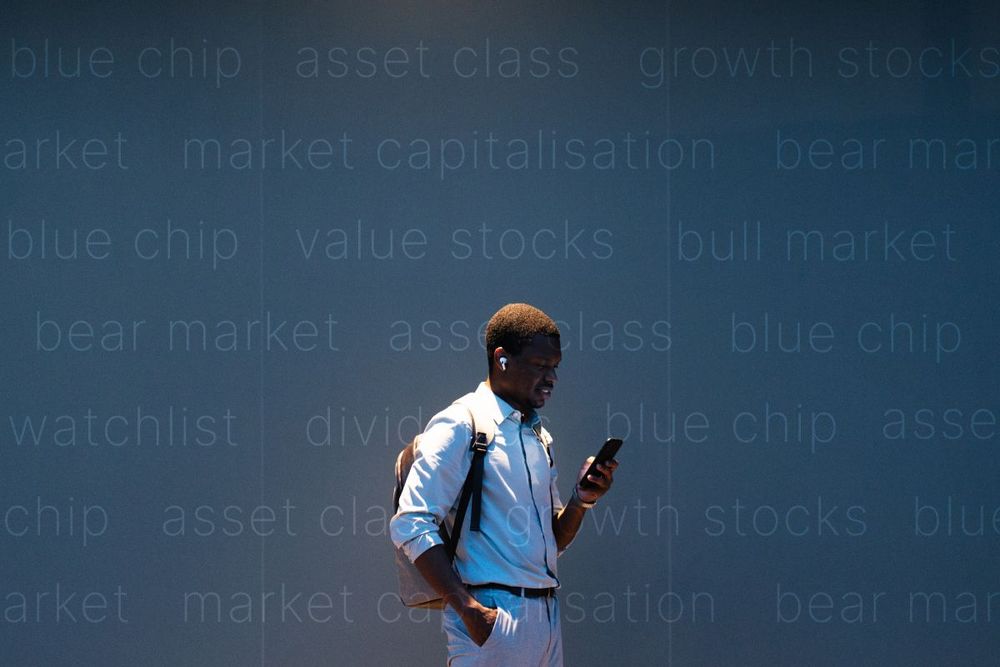
Immersing yourself in the world of investing can be a confusing, headache-inducing experience as you come across new terms and/or the unlikely use of familiar words. We’re here to help you make sense of your investing activities by simply explaining some of the most common terms you’ll come across as you make moves to build your wealth. Ready? Let’s go!
Asset class
Asset classes are categories of investment options that have similar qualities and follow the same laws and regulations. The most common asset class is shares (also referred to as equities) but bonds, cash, property, and commodities are popular too. FYI, art and cryptocurrency are also asset classes.
How to use it in a sentence?
“Even though I’m a newbie investor, one thing I’ve learnt is that it’s important to diversify and invest in different asset classes.”
Bear market
No, a bear market is not a shopping paradise for bear lovers. Rather, it’s a grim time for investors as assets lose value. During a bear market, the market takes a downturn often within a short period of time, seeing investment prices drop by 20% or more from their most recent high. According to Forbes Advisor, bear markets tend to occur every three and a half years.
How to use it in a sentence?
“Dude, don’t let this bear market rattle you. You have to see it through. What goes down must come up, right?”
Bull market
A bull market is the opposite of a bear market and reflects a period of low unemployment, a strong GDP and positive investor sentiment amid share value increases of 20% or more over at least two months. Bull markets for the win! The average length of a bull market is 1 742 days, says Nerd Wallet.
How to use it in a sentence?
“Have you thought about adding more stocks to your portfolio during this bull market?”
Blue chip
Blue chip stocks are companies that are particularly valuable and boast shares that are in high demand – the cool kids, basically. The term has carried over from poker, where blue chips are of the highest value. Blue chip companies tend to be industry leaders, have a large market capitalisation and a history of success, hence their popularity among investors.
How to use it in a sentence?
“When investing in blue chip stocks, it is important to do your research and choose companies that are well-positioned for long-term success.” – Kevin Chin
Dividends
When you invest in a company, you’re buying a piece of that company that entitles you to share in its profits. When those profits are paid out to investors (or shareholders, whichever you prefer), they are called dividends. Dividends can be paid out monthly, quarterly or annually. Note that not all companies pay dividends, so be sure to invest in dividend stocks if monetary payments are what you’re after.
How to use it in a sentence?
“I aspire to grow my portfolio of investments so that I can live off my dividends.”
Growth stocks
Growth stocks are those that are expected to grow and outperform the market (or grow at a faster rate than the market average). Because of their popularity, they tend to be high priced, but they do generally carry high earnings potential.
How to use it in a sentence?
“As global growth slows, high-quality growth stocks will start disappearing.” – Wayne Duggan, U.S. News
Value stocks
Unlike growth stocks, value stocks trade at a price considered to be below their value. Because they’re undervalued, they tend to be more affordable and thus present good opportunities for eagle-eyed investors. In theory, value stocks are less risky and are not viewed as volatile.
How to use it in a sentence?
“An example of a value stock would be a bank, such as JPMorgan Chase (JPM).” – Investopedia
Market capitalisation
More commonly called market cap, this refers to a company’s value, specifically the value of its publicly traded company shares. Market cap is calculated by multiplying the share price by the number of shares outstanding. Companies with a market cap of $10 – $200 billion are referred to as large-cap stocks, while companies with a market cap of between $2 – $10 billion are referred to as mid-cap stocks.
How to use it in a sentence?
“Hey, did you know that in 1995, General Electric became the first company ever to amass a market cap of $100 billion?”
Watchlist
This is a handy feature in the Shyft app that allows you to track the performance of a share you’re interested in prior to buying it (to ensure you’re investing wisely, of course). To add a share to your watchlist, head to the “Shares” tab in the app, search your share of interest and tap on the heart next to it. Easy!
How to use it in a sentence?
“I’ve added a few shares to my Shyft watchlist, and I’m curious to see how they’ll perform over the next month.”
Disclaimer: The views shared are for informational purposes only and do not constitute financial advice. One should always conduct their own research before making a decision and/or seek advice from a professional.